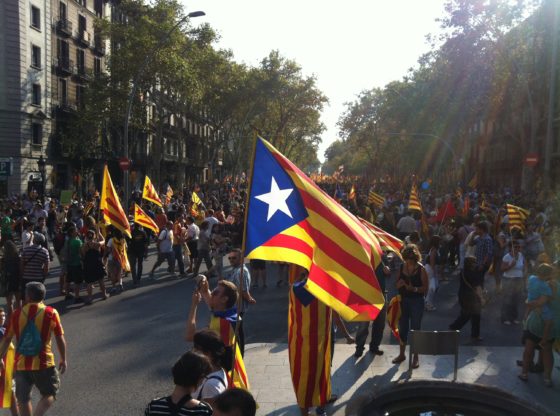Since its inception in 2013, Police Scotland has often been in the news. A story less told is its growing international reputation for offering high-quality training to police forces in other countries. In this article, David Hamilton of the Scottish Police Federation illuminates the nature of Police Scotland’s international work, and how opportunities are growing for collaboration between national police forces.
‘A new national Police Force, wrestling with the conflicting demands of national versus local and urban versus rural. A Force that has suffered the ignominy of a failed major IT project. A Force subject to regular political interference and savage press criticism. A Force facing severe budgetary constraints’.
The description above refers to the Netherlands National Police Force. But it will be familiar to many Scots. After all, the single Scottish force - Police Scotland - shares much in common not just with the Dutch but also with the Swedish, Danish, and Norwegian Police. All are single national forces. Such a structure is becoming the European norm.
By taking a European perspective, we can see that Police Scotland’s challenges are far from unique and are being experienced elsewhere on the continent. But this commonality with our European neighbours lends the opportunity to learn, share, and develop solutions with them.
The divergence in UK policing approaches has been one of the most extraordinary developments in policing in the last 15 years.
This is timely as our traditional reference points - the police forces of England and Wales - are moving in a different direction altogether. The divergence in UK policing approaches has been one of the most extraordinary developments in policing in the last 15 years. While Scotland adopts a single force European model, England and Wales policing is more inspired by the US approach - where 18,000 different law enforcement agencies deliver multi-layered policing directed by elected mayors and police commissioners.
A GROWING INTERNATIONAL ROLE
It is on the international stage that Police Scotland is really excelling. Having understood the context and seen the opportunities, it is now making a big impact across the globe. Scottish policing is developing its highly respected brand and delivering training, advice, and infrastructure to developing countries in Africa, the Middle East, the Caribbean, and Asia.
Leading this effort is the force’s International Development and Innovation Unit (IDIU). Established about 15 years ago at the Scottish Police College, the IDIU has morphed from a body dealing with visiting delegations, to being the preferred supplier of international police training for many developing nations.
Its first two projects were in Malawi and Sri Lanka. Malawi has long links with Scotland, formally supported by Jack McConnell’s Scottish Executive in 2005, and by the Scottish government thereafter. The challenges of helping develop bespoke, ethical policing models in the sixth poorest country in the world were enormous - and they continue. Just getting its training teams to parts of Malawi can be a major logistical challenge for the IDIU.

The Sri Lanka project started at the end of its 30-year civil war. Initially funded by Scottish government, and later by the UK government, a police Force of 84,000 had to learn new policing skills, come out from fortressed police stations, and start integrating positively with the civilian population.
Encouraging and supporting the Sri Lankan Police Service to improve its policing approach continues to be a key part of the UK’s long-term commitment to improving human rights in Sri Lanka. The focus has been on minimizing the risk of ill-treatment or excessive use of force, enhancing investigation skills to reduce reliance on confessions, and on respecting human rights while managing public gatherings and protests effectively. Police Scotland, with its respected ethics-based policing model, was a natural partner for delivering this important programme.
AN EFFECTIVE APPROACH
The approach taken by Scottish police is acknowledged to be distinctive. Where other police forces offering international training have tended to simply try to layer their own domestic policing models onto a country where most of the crucial ‘partner agencies’ we are familiar with don’t exist, the Scottish approach was to learn about the country, its culture and politics, and develop something sustainable with its partners. The keenness to encourage local solutions was evident when a Scottish officer responded to the question “How do you do community policing in Scotland?” with: “I’m not telling you – develop your own. But we will help you!”.
This approach of helping countries develop their own approaches was, and is, the signature of the Scottish International Policing Model. Firstly, the IDIU supported a Sri Lankan Police Qualification Authority arrangement so that the country could accredit its own police officers, once the Scots had left. Later on, ‘train the trainer’ courses were delivered, giving Sri Lanka the ability to deliver its own accredited community policing, crime investigation, public order training, and leadership and development courses. Uptake has been enthusiastic and a new generation of police commanders are developing their nation’s police service in a positive manner.
The purpose of this Scottish-delivered training is not for Sri Lanka to somehow skip 200 years of policing evolution. Instead, it is to allow the Sri Lankan police to draw upon the Scottish experience in order to accelerate their progress. In a short period of time, the IDIU officers delivering this training have seen real, transformational results.
A GROWING REPUTATION
The success of the Sri Lankan project has led to more international work. Police Scotland teams have been working in the Punjab, developing courses and creating crime investigation materials. They now have training on: crime scene management techniques; forensic preservation; victim care; and specialist training for female officers. Once again, Police Scotland has delivered infrastructure assistance, supported a principled and ethical approach, and encouraged tactical solutions developed by local police. So when you don’t have access to crime scene barrier tape, you improvise: use stones, placed on the ground, to demarcate the scene.
The IDIU has also been working with police services in Zambia, Anguilla, Jamaica, and Qatar, delivering training such as strategic development, ‘train the trainer’ packages, and public order tactics. Qatari officers preparing for the 2020 FIFA World Cup were ‘blown away’ as they watched an Old Firm match - they were told: “This is what you could expect if Russia play Ukraine!”
Qatari officers preparing for the 2020 FIFA World Cup were ‘blown away’ as they watched an Old Firm match - they were told: “This is what you could expect if Russia play Ukraine!”
The outcomes from these projects are tangible and rewarding for the Police Scotland teams. Part of the community policing training programme delivered in one country required local police commanders to identify the top priorities for their districts and develop solutions to address them. In one slum area, officers were especially keen to protect vulnerable children, some of whom were staying in buildings that were just walls and concrete floors - no doors or windows. These children were exposed to open sewers, disease, and - worst of all - sexual predators.
In this hell, the police identified vulnerable children as young as 8, who were too poor to pay the $80 per year for the uniform, paper, and pens they would need to take advantage of their free state education. The chosen solution was to get the children to school and to a safe environment. In order to achieve this, the local police refurbished the schools, built toilet blocks, provided the most vulnerable children with a uniform, paper and pens, and gave them breakfast in the police station - all with their own money.
They also introduced complaint boxes on walls so that children could raise concerns about anything that was troubling them, thus allowing the police or the school to intervene as appropriate. This was a project without precedent, designed by local police for their communities. It occurred under the guidance, mentoring, and assistance of Police Scotland.
But it’s not all give. The Scottish officers who visit other countries gain enormous personal development from these deployments. Perspectives and attitudes change and give cause for reflection. One Child Protection Specialist who went to Malawi talks about his admiration for how the local police officers are able to make do with what they have, and adapt.

Whilst it’s not the objective, the IDIU generates Police Scotland money - around £500,000 last year. This is welcome revenue which allows for important projects such as upgrading the ‘Jewel in the Crown’ of Scottish policing - Tulliallan Castle - and in future perhaps, specialist equipment for the departments who second the most officers.
In an increasingly interconnected world, policing inevitably becomes more international and there is opportunity for best practice and innovation to be shared. A recent German police visitor to Tulliallan remarked that Police Scotland was “unmatched in international experience”.
A recent German police visitor to Tulliallan remarked that Police Scotland was “unmatched in international experience”.
The development of these international partnerships allows for consortia to be developed in order to tackle global problems. Ghana, a country struggling to tackle child slavery in the fishing communities situated around Lake Volta, finds many of its nationals operating on boats in the international waters off our west coast. Many have been trafficked onto these boats and are transferred from boat to boat, never setting foot on dry land. Coincidence or connection? This work requires international coordination and funding.
The Scottish Police Federation (the Staff Association representing rank and file officers) sees opportunities too. It is now represented at the highest level of the leading International and European Police Staff Bodies ICPRA and EUROCOP. Recent policy papers have identified the need for a pan-European standard of training and equipment to deal with the migration crisis on the shores of the Mediterranean, the need for a more cohesive European response to terror, and the effects of an ageing workforce on operational policing.
The VRU are now assisting the Swedish police on their strategy to tackle gang problems in some of Stockholm’s most deprived housing estates.
This engagement led to a recent exchange with Swedish police officers which saw the Scots gather inspiring examples of well-being approaches, while the Swedes met and developed an ongoing relationship with Scotland’s renowned Violence Reduction Unit (VRU). The VRU are now assisting the Swedish police on their strategy to tackle gang problems in some of Stockholm’s most deprived housing estates.
So while many will highlight the problems of the force domestically, Police Scotland and Scottish policing has become a brand of international excellence and success. This success is an achievement of the 200 police officers and staff who have been delivering training and advice across the globe. Their example is one that Scotland should be proud of.
David Hamilton is a former aid worker. He is a serving police officer and Vice Chair of the Scottish Police Federation. He tweets as @VChairSPF
Feature Image: Sergeants James Thomson and Jackie Melville of Police Scotland sit and converse with Malawian counterparts. © Police Scotland.











